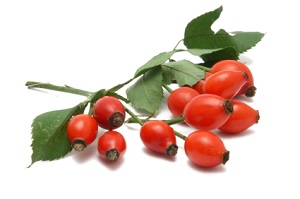
More evidence that low-calorie sweeteners are bad for your health
Studies show that artificial sweeteners can raise the risk of hypertension, metabolic syndrome, type 2 diabetes and heart disease, including stroke.

It’s the hippest oil in town and these days – and since Kate Middleton’s let slip its one of her favourites – it even has a royal seal of approval.
So it’s hip – but does it live up to the hype?
Roses have long been a religious and mythological symbol of purity, beauty, elegance and sensuality. Rose petals yield an essential oil is with a luxurious and very feminine fragrances. But rosehip oil is a seed oil extracted from the ‘hip’ of the rose plant – the fleshy seed-containing ball that remains on the plant after the flower petals have dropped.
In their very useful book Carrier Oils for Aromatherapy and Massage, Len Price, Ian Smith and Shirley Price note that rosehip oil can be extracted from several different rose species including Rosa canina L, Rosa acicularis Lindl, Rosa cinnamomea L, Rosa rugosa and Rosa villosa as well as Rosa rubiginosa.
Deeply moisturising
Thanks to its high percentage of polyunsaturated fatty acids – around 44% linoleic (omega-6) acid and 36% alpha linolenic (omega-3) acid as well as useful amounts of palmitic and oleic acids – rosehip oil is greatly valued as a cosmetic ingredient and for nutritional purposes.
It can quickly improve skin tone, smooth away signs of premature ageing such as wrinkles and crow’s feet, attenuate scars left after surgery or injury and even permanently diminish stretch marks.
Originally it was thought that this effect was due to the high level of fatty acids alone. But now we know that rosehip oil also contains trans-retinoic acid (a form of vitamin A, commonly marketed under the name Tretinoin) and this is likely the key its renowned healing properties.
The therapeutic effect of topically applied Tretinoin has been well researched and recognised for decades and has proven helpful in repairing skin damaged by excessive exposure to sunlight. It is also a treatment for acne. On its own it can produce quick results but is a powerful substance that can produce unpleasant side effects and should only be applied under medical supervision.
The retinoic acid in rosehip oil, however, is unlikely to cause such problems because it is part of a synergistic complex of unsaturated fatty acids and other naturally occurring chemicals that may modify potential adverse effects such as burning and other skin problems. Nevertheless some people with very oily or sensitive skin or may find it irritating. If in doubt always do a small patch test first.
Deeply healing
Not only can it work as an everyday skin healer, it can be useful for more challenging skin problems such as photoaged skin and surgical scars. In some studies an ointment made with rosehip oil has been shown to be helpful for cancer patients with radiation induced burns, inflammation and tissue degeneration. It has also found to be effective in treatment skin ulcers that had failed to respond to antibiotics.
For instance, one small study found that rose mosqueta oil (a type of rose hip oil from Chile) had wound healing benefits. Ten patients with leg ulcers and surgical wounds were treated with oil containing 26% rosa mosqueta and compared to a control group not using the oil. Only the rosehip oil group showed notable improvements.
Also good on the inside
But the goodness doesn’t stop there. Rosehip oil can be taken internally as a supplement. Like many seed oils it contains “good” fats and studies of rosehip oil supplements taken internally have found that they can reduce cholesterol and other blood fats. Supplements, available in capsule form as an oil or powder extract, may also be effective in relieving some symptoms associated with rheumatoid arthritis and osteoarthritis.
Other evidence shows that the pigments in rosehip oil are a useful source of antioxidant carotenoids which can be both a food colouring and a supplemental source of provitamin A.
Like all unsaturated fatty acids, rosehip oil is sensitive to air, heat, light and humidity. In unopened original packaging and stored in a cool place in can be stored for 18 months but one opened it should be used relatively quickly.

Please subscribe me to your newsletter mailing list. I have read the
privacy statement